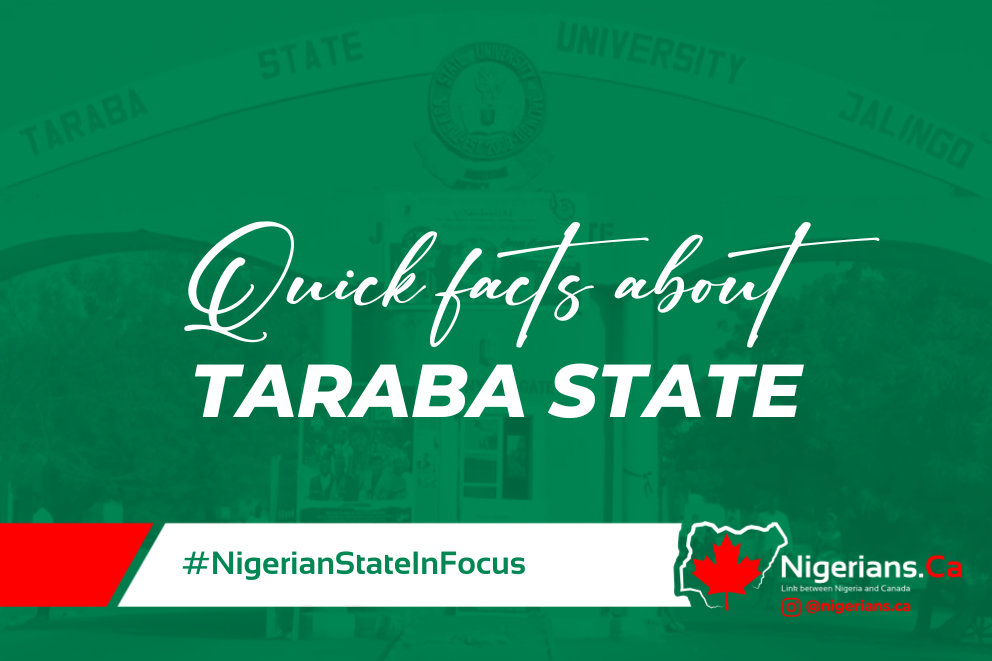Taraba State is a state in northern Nigeria. It was made in 1991, when the southwestern half of the old Gongola State was put together with the rest of Taraba State. Bauchi and Gombe states border Taraba on the north, Adamawa state on the east, Cameroon on the south, and Benue, Nassarawa, and Plateau states on the west.
There are over eighty (80) indigenous ethnic groups in Taraba State, each with its own distinct historical and cultural heritage, cohabiting peacefully with one another. Some of these tribes include Mumuye, Ichen, Wurkum, Mambilla, Kuteb, Chamba, Jukun, Yandang, Fulani, Jenjo, Kunini, Lo, Ndoro, Kambu, Kaka, Bandawa, Munga, Tiv, Zo, Bambuka, and Jibu, etc.
Hausa is commonly spoken by most indigenes of Taraba State, irrespective of ethnic grouping. Taraba State also has ethnic groups such as Yoruba and Igbo. As a result of its agrarian nature, the predominant population of the state engages in farming as an occupation.
It has a pleasant temperate climate and a diverse vegetation that not only provides for food but also for recreation. herds of cattle but also grows a very popular and unique tea, which is now being processed for export because of the richness of the flavour.
The main occupation of the people of Taraba State is agriculture. Cash crops produced in the state include coffee, tea, groundnuts, and cotton. Crops such as maize, rice, sorghum, millet, cassava, and yam are also produced in commercial quantities.
In addition, cattle, sheep, and goats are reared in large numbers, especially on the Manbilla Plateau and along the Benue and Taraba valleys. Similarly, the people undertake other livestock production activities like poultry production, rabbit breeding, and pig farming on a fairly large scale.
Taraba State is among the leading states in the production of livestock, with its dairy farms at Jalingo, Gembu, and Nguorje.
All year, communities on the banks of the Benue, Taraba, and Ibi rivers go fishing.
Other occupations like pottery, cloth weaving, dyeing, mat-making, carving, embroidery, and blacksmith are also carried out in various parts of the state.
Taraba has large quantities of mineral deposits that are yet to be explored and tapped; some of them are graphite, calcite, barite, quartzite, tin ore, gold, bauxite, kaolin, zircon, topaz, and various gems.
The Mamilla Plateau, Gashaka, and Karimbela Game Reserves all have beautiful scenery that draws in tourists and visitors.





